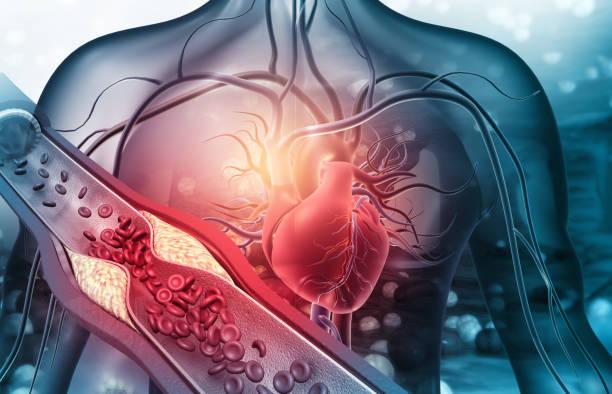Vascular Surgery in Riyadh: A Guide for Patients with Chronic Conditions

Vascular surgery is a specialized field that focuses on the diagnosis and treatment of conditions affecting the vascular system, including arteries, veins, and lymphatic vessels. For patients with chronic conditions, vascular surgery can offer significant relief and improve quality of life. This guide aims to provide essential information about vascular surgery in Riyadh, helping patients understand their options, what to expect during the process, and how to prepare for their surgery.
Understanding Vascular Conditions
What Are Vascular Conditions?
Vascular conditions are disorders that affect the blood vessels and lymphatic system. Common conditions that may require surgical intervention include:
- Peripheral Artery Disease (PAD): A condition where narrowed arteries reduce blood flow to the limbs, causing pain and mobility issues.
- Varicose Veins: Enlarged veins that can lead to discomfort, swelling, and skin changes.
- Aneurysms: Abnormal bulges in blood vessels that can lead to serious complications if not treated.
- Deep Vein Thrombosis (DVT): The formation of a blood clot in a deep vein, usually in the legs, which can lead to pulmonary embolism.
Importance of Early Diagnosis
Early diagnosis is crucial in managing vascular conditions effectively. Symptoms may vary, but common signs include:
- Leg pain during activity
- Swelling in the legs or ankles
- Discoloration of the skin
- Wounds that heal slowly
Recognizing these symptoms and seeking medical advice promptly can lead to better outcomes and more treatment options.
The Role of Vascular Surgery
When Is Vascular Surgery Recommended?
Surgical intervention may be necessary for chronic vascular conditions when:
- Non-surgical treatments, such as medication or lifestyle changes, have failed to provide relief.
- There is a significant risk of complications, such as limb loss or stroke.
- A vascular condition is severely affecting the patient’s quality of life.
Common Surgical Procedures
Some of the most common vascular surgeries include:
- Angioplasty and Stenting: A minimally invasive procedure to open narrowed arteries using a balloon and placing a stent to keep the artery open.
- Bypass Surgery: Creating a new path for blood flow by diverting blood around a blocked artery.
- Vein Stripping: Removing varicose veins to alleviate discomfort and prevent complications.
- Endovenous Laser Treatment (EVLT): A minimally invasive procedure that uses laser energy to close off varicose veins.
What to Expect Before the Surgery
Consultation Process
The journey to vascular surgery in Riyadh begins with a comprehensive consultation. During this appointment:
- The healthcare provider will review your medical history, symptoms, and any previous treatments.
- Diagnostic tests such as ultrasound or angiography may be conducted to assess the vascular system.
- The surgeon will discuss the recommended surgical procedure, its risks, and benefits.
Preoperative Preparations
Proper preparation is essential for a successful surgery. Patients are typically advised to:
- Stop Smoking: Smoking can impair healing and increase surgical risks.
- Adjust Medications: Some medications may need to be paused before surgery, particularly blood thinners.
- Follow Dietary Instructions: Patients may be advised to fast for a certain period before the procedure.
The Day of Surgery
What Happens During Surgery?
On the day of surgery, patients should arrive early to allow for any last-minute preparations. The surgical team will:
- Review your medical history and confirm the procedure.
- Administer anesthesia to ensure comfort during the operation.
- Conduct the surgical procedure according to the pre-established plan.
Recovery Time
Recovery times vary depending on the type of surgery performed. Generally, patients can expect:
- Short Hospital Stays: Many vascular procedures are minimally invasive, allowing for shorter hospital stays.
- Follow-Up Appointments: Postoperative visits are crucial to monitor healing and manage any complications.
- Gradual Return to Activities: Patients will be advised on when they can resume daily activities and exercise.
Postoperative Care
Managing Pain and Discomfort
It is normal to experience some pain or discomfort after surgery. Pain management strategies include:
- Medications: Prescription pain relievers may be provided.
- Rest: Taking time to rest and recuperate is vital for healing.
- Ice Packs: Applying ice can help reduce swelling and discomfort.
Lifestyle Changes
After vascular surgery in Riyadh, patients are encouraged to adopt lifestyle changes to support their recovery and prevent future vascular issues:
- Healthy Diet: A balanced diet rich in fruits, vegetables, and whole grains can improve vascular health.
- Regular Exercise: Engaging in regular physical activity helps improve circulation and overall health.
- Weight Management: Maintaining a healthy weight reduces strain on the vascular system.
The Benefits of Vascular Surgery
Enhanced Quality of Life
Many patients report significant improvements in their quality of life after undergoing vascular surgery in Riyadh. Benefits include:
- Reduced pain and discomfort
- Improved mobility and function
- Enhanced appearance of the legs in cases of varicose veins
Long-Term Health Improvements
In addition to immediate relief, successful vascular surgery can lead to long-term health benefits, including:
- Lower risk of serious complications, such as heart attack or stroke
- Improved blood circulation
- Better overall cardiovascular health
Conclusion
Vascular surgery can be a transformative option for patients suffering from chronic vascular conditions. By understanding the various aspects of vascular surgery in Riyadh, including preparation, the surgical process, and postoperative care, patients can feel more confident and informed in their healthcare journey. Always consult with a qualified healthcare professional to discuss your symptoms and the most appropriate treatment options for your individual needs. Embracing a proactive approach to vascular health can lead to a healthier, more active life
- Art
- Causes
- Crafts
- Dance
- Drinks
- Film
- Fitness
- Food
- Παιχνίδια
- Gardening
- Health
- Κεντρική Σελίδα
- Literature
- Music
- Networking
- άλλο
- Party
- Religion
- Shopping
- Sports
- Theater
- Wellness


